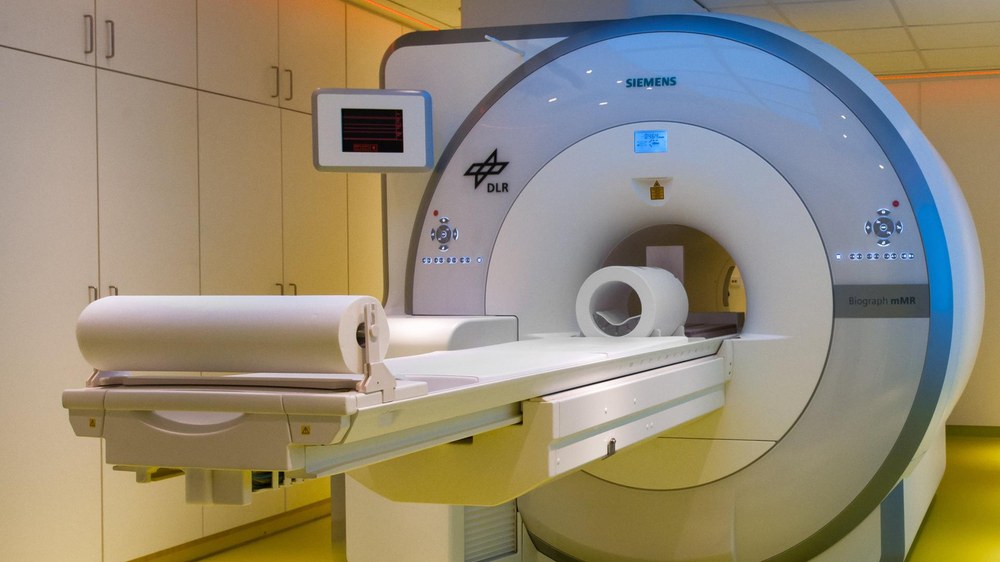PET-MRI (Module 4 at :envihab)



The PET-MRI, Module 4 at DLR’s :envihab research facility of the DLR Institute of Aerospace Medicine in Cologne, makes it possible to study the physiological changes that can occur in humans on long space flights, among other things. Such insights can in turn be applied to the kinds of physical stress to which people on Earth may be subjected due to unfavourable conditions.
The PET-MRI device at German Aerospace Center (Deutsches Zentrum für Luft- und Raumfahrt; DLR) allows the study of physiological changes due to various factors such as bed rest, head-down position, hypoxia, sleep deprivation, or space missions. The impact of these factors on human physiology provides a unique opportunity for basic research, such as the quantification of sodium in tissue and energy metabolism with phosphorus spectroscopy. The PET scanner is used to quantify the spatial distribution of tracer substances. This highly sensitive process allows scientists to detect metabolic processes in the brain.
Fundamental research into the effects of long-duration spaceflight
Unlike a clinical scanner, the PET-MRI has been modified to allow for special MRI procedures. These include sodium imaging (23Na MRI), phosphorus spectroscopy (31P MRS), perfusion and diffusion measurement, and functional imaging (fMRI). In addition, the scanner consists of a combined device comprising PET (positron emission tomography) and MRI (magnetic resonance imaging), whereby both systems can be used simultaneously.
Notably, the proximity of Module 4 to the other equipment at :envihab – the test participant station, the hypobaric chamber, the physiology laboratory and the centrifuge – allows the direct examination of test participants during and after intervention. Their participation may include training, sleep deprivation, head-down position, local immobilisation, bed rest, or altered air composition (normobaric hypoxia or increased CO2 concentration). This combination makes it possible to carry out complex, integrated studies.
